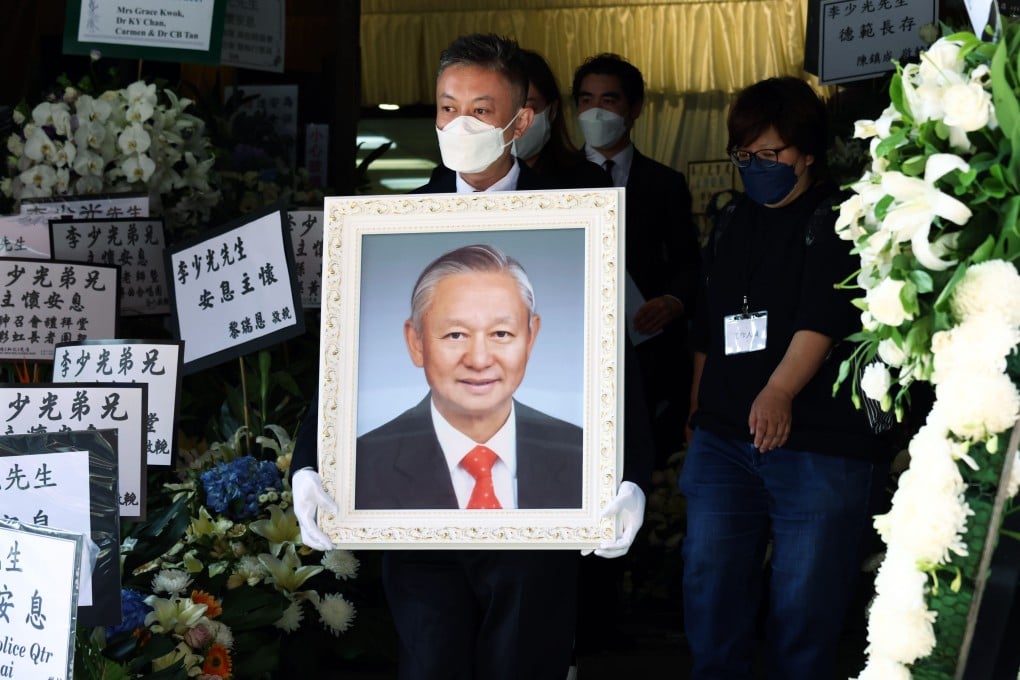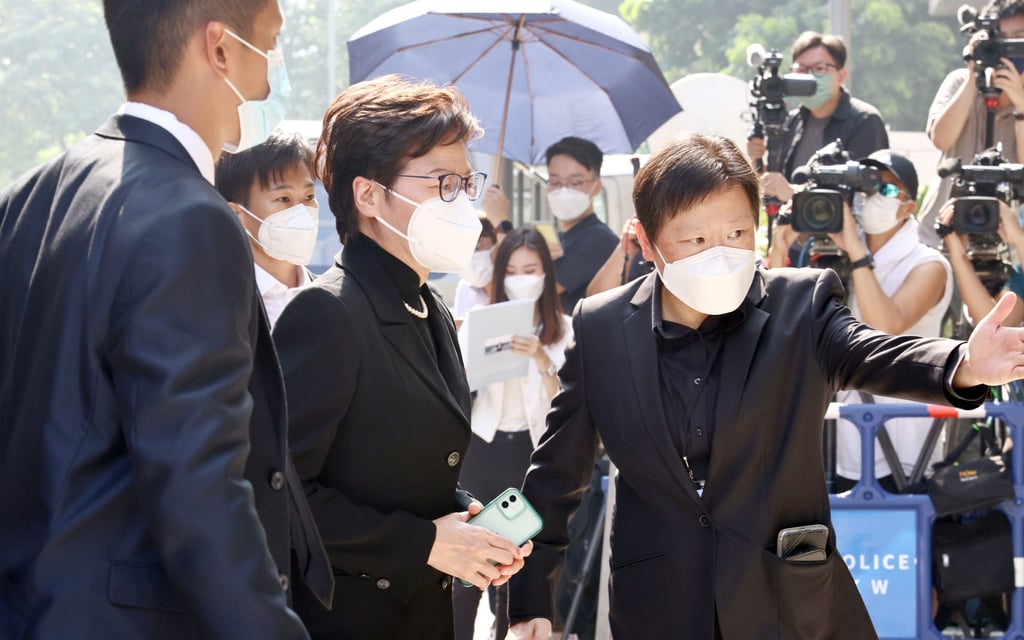Top Hong Kong officials, politicians pay last respects at funeral of former security chief Ambrose Lee
- Ambrose Lee, who served as secretary for security from 2003 to 2012, died in his sleep on August 14, aged 73
- Among the mourners were Chief Executive John Lee and former leaders Leung Chun-ying and Carrie Lam

Top officials, political heavyweights and senior officers from the disciplined services paid their last respects on Monday at the funeral of Ambrose Lee Siu-kwong, Hong Kong’s longest-serving security chief.
Lee, who served as secretary for security from 2003 to 2012 and steered the government’s response to chaotic protests at a trade summit and a deadly hostage crisis involving residents visiting the Philippines, died in his sleep on August 14, aged 73.
According to the memorial booklet, he felt unwell the evening before his death, but his condition had eased before he went to bed.

Former chief justice Geoffrey Ma Tao-li and pro-Beijing heavyweight Rita Fan Hsu Lai-tai also attended the service, while many others sent wreaths. The coffin was later taken to Diamond Hill Crematorium.
Lee is survived by his wife, two children and four grandchildren. His son, Glen Lee Lam-yan, was an artist for local broadcaster TVB for more than two decades.

In the memorial booklet, which included family photos and drawings, a granddaughter said Ambrose Lee had been her role model ever since she could remember and her caddie on the golf course.
